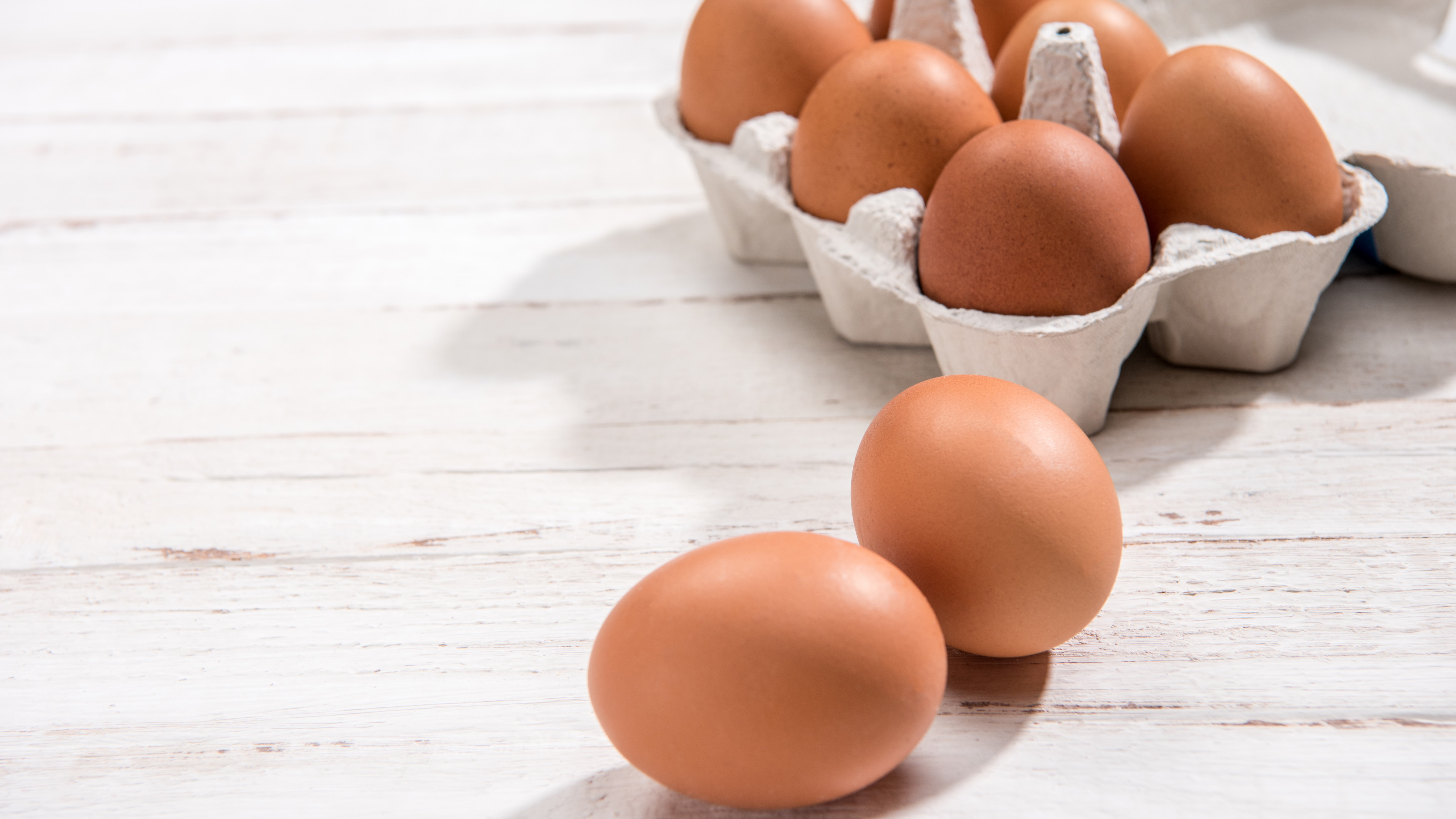How to store eggs – in or out of the fridge?
Here's how to store eggs properly for optimal safety and flavour

Have you always wondered how to store eggs correctly? The egg storing debate tends to really polarise egg lovers: one side of the debate is convinced that you must store eggs in the fridge; the other is adamant that eggs should be stored at room temperature for the best flavour... which side is right, and which method is safer? See all our egg recipes in one place.
- For more food ideas and recipes, visit our hub page
Which way do you store eggs?
Either in the fridge or at room temperature. There are points to consider for both ways but one thing you don't need to worry about is salmonella. Assuming that your eggs are from British hens, as British hens are routinely vaccinated against salmonella, and if the eggs you've bought have a red lion stamp on them, they're almost certainly safe.
Is it better to keep eggs in the fridge or not?
Keep eggs in the fridge if you want to keep them fresh for longer and tasting their best when you cook them.
Storing your eggs in the fridge ensures a consistently cool temperature that will keep the eggs at their best for longer, and well past the sell-by date on the carton. However, you should never store eggs in the fridge door, because the temperature there tends not to be as consistent as in the middle of your fridge. So, keep your eggs on the middle shelf of your fridge.
You should also keep them in their original carton, which actually protects your eggs from absorbing unwanted smells from your fridge. Egg shells are porous and do tend to absorb odours. Of course, storing them outside of the fridge eliminates this problem.
How long can you keep eggs out of the refrigerator?
Four weeks is the amount of time your eggs will keep nice and fresh at room temperature, provided there are no extreme temperature fluctuations during this time.
However, If you've gone down the refrigerator route mentioned above, then you should keep your eggs there as brining them to room temperature after they have been cold may cause the egg to sweat and product unwanted bacteria.
Get small space home decor ideas, celeb inspiration, DIY tips and more, straight to your inbox!
To sum up: if you use up your eggs quickly, and your pantry is fairly consistent in temperature, there's no need to store your eggs in the fridge. If you want them to last longer and possibly taste even better, then refrigerate them.
Anna is a professional writer with many years of experience. She has a passion for contemporary home decor and gardening. She covers a range of topics, from practical advice to interior and garden design.